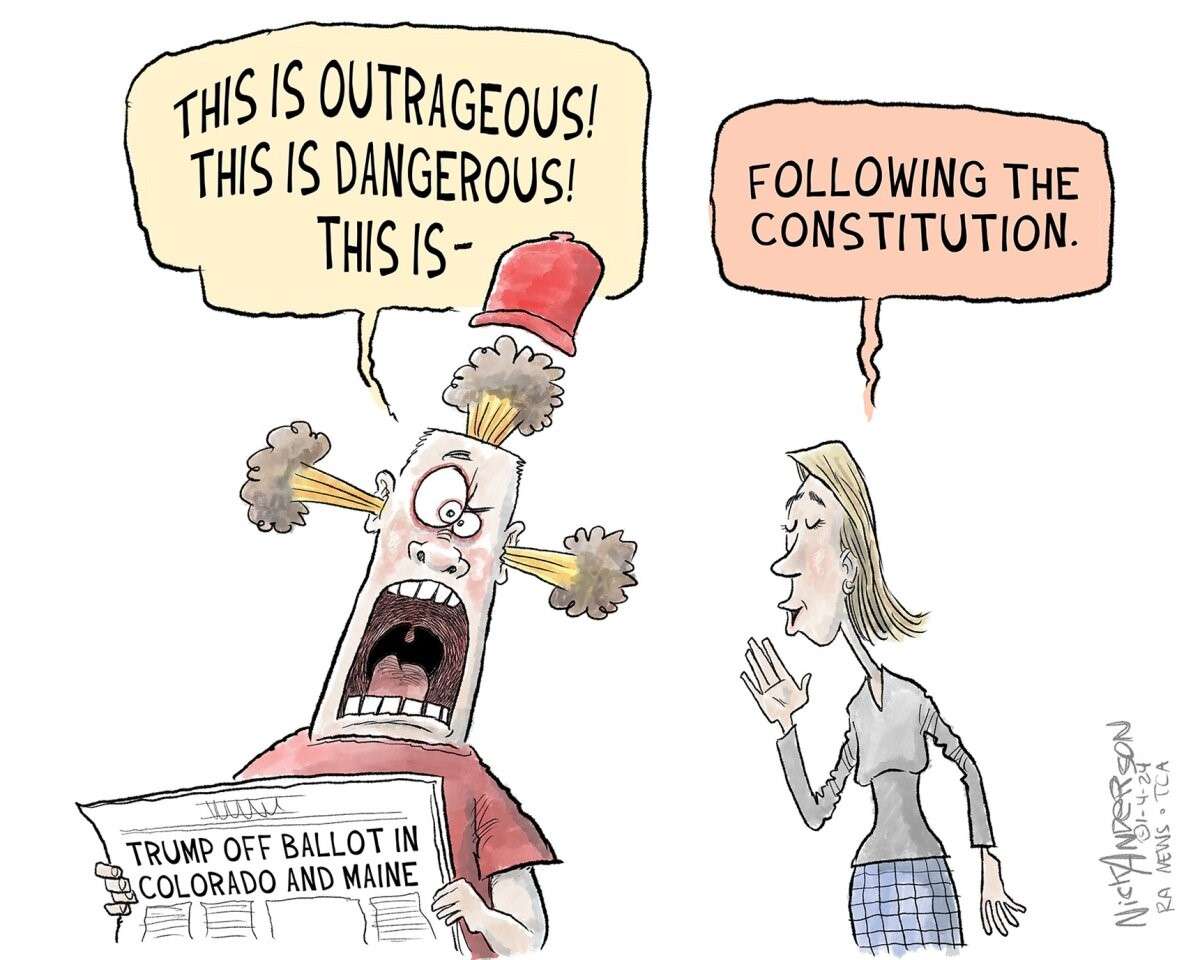
13 Jan Reformulating ‘The Election No One Wants’
“There is a clear path to a better 2024 election outcome.” – The Lonely Realist
Americans see their democracy threatened at one extreme by “socialism of the left” and on the other by “fascism of the right.” A substantial minority look to Donald Trump to save America from the depredations of progressive-socialism while a different substantial minority put their faith in Joe Biden to save America from the excesses of MAGA-fascism. The Supreme Court’s Chief Justice, John Roberts, now possesses an historic power to prevent both.
The Supreme Court soon will be reviewing the Colorado supreme court’s decision in Anderson v. Griswold. This gives it the power to decide whether Donald Trump will be permitted to run for President. Should it affirm the Colorado court’s majority-holding that President Trump cannot seek the Presidency because he “engaged in insurrection” and gave “aid or comfort” to those who did, Nikki Haley will be the Republican Party’s nominee. A sizable majority of American voters believe that this would be a good thing. Were Haley to become the Republican Party’s nominee, she would be the odds-on favorite to win the November election and become the first woman next President of the United States. That gives the Supreme Court the power to determine the Presidential election outcome, a circumstance unique in history. The Supreme Court’s direction in deciding Anderson v. Griswold – determining who the next President will be – largely rests on the shoulders of the Chief Justice, who could manage the Court to an historic outcome. Chief Justice Roberts has an intense awareness of his place in American history. After all, he is one of only 17 ever to have served as Chief Justice. Luck Fate has placed him in this position, providing the opportunity to predetermine the outcome of the 2024 Presidential election, what may well be the most important election in American history.
Many have questioned whether it would be legally correct for the Supreme Court to hold that Donald Trump violated Article 3 of the Constitution’s 14th Amendment. It would be. From a policy perspective, others have questioned whether it would be appropriate for the Supreme Court to preclude a duly-selected primary nominee from running for President. It too would be. Can the Court in all fairness reasonably conclude that the former President actually “engaged in insurrection” or gave “aid or comfort” to those who did? Once again, yes, it can. The Court has unfettered discretion to reach whatever legal/equitable decision it believes best. Section 3 of the 14th Amendment is sufficiently ambiguous for almost any interpretation to be a valid one. Arguments against an anti-Trump holding include that a trial on the merits and a guilty verdict are a necessary prerequisite, that applying Section 3 requires an act of Congress, and that Presidents are not specifically enumerated in Section 3 and accordingly cannot be guilty of insurrection. Reasonable arguments all, but not dispositive. There also are political arguments against such an anti-Trump-as-candidate decision, one of which was voiced by Ronna McDaniel, the chair of the Republican National Committee, who said that Trump’s disqualification amounts to “election interference.” Trump has labeled the Colorado court’s holding the act of a “BANANA REPUBLIC.” On the other hand, a majority of legal scholars (including members of The Federalist Society and legal scholars with strong conservative credentials) have reasoned that the former President undoubtedly “‘engaged in’ the January 6th insurrection through both his actions and his inaction,” concluding that President Trump’s actions fall within the wording and intent of Section 3 of the 14th Amendment.
Given the importance of the issue, the Supreme Court’s process in reviewing Anderson v. Griswold cannot be an exercise in legal hair-splitting. The Court is not dealing with a Constitutional law exam question. Anderson v. Griswold should not be about judicial restraint and its effect on future Court decisions. The facts and consequences are singular, never to be repeated, with election 2024 being critical to the future of America. The Court’s process therefore should be pragmatic, focusing solely on “What would be best for America?” Debating what is “fair” or “reasonable” or “legally appropriate” necessarily becomes an exercise in nit-picking. Will America benefit most from the re-election of Donald Trump/Joe Biden? Or will America derive the greatest benefit from the candidacy and election of Nikki Haley (or Ron DeSantis, etc.? And would the disqualification of Donald Trump lead Joe Biden to reconsider his candidacy?)? Each Supreme Court Justice must answer the question of “Do I want a reprise of the 2020 election pitting Biden against Trump with extreme electioneering, contentious voting, acrimony and subsequent litigation, with the outcome being either a second Biden Presidency with a sizable portion of the electorate questioning the outcome or a second Trump Presidency also with a sizable portion of the electorate questioning the outcome (as well as the promise of “Trump retribution”), OR do I want a Nikki Haley Presidency?”
The Iowa caucuses are on Monday, January 15th. Après Iowa, le déluge! The Supreme Court can ensure that America avoids “The election no one wants.” It can justify its decision on a variety of valid grounds. The question, therefore, is which outcome do the Justices want?
TLR Index
An index of TLR titles can be found here.
Finally (from a good friend)





jeffcsiegel
Posted at 09:28h, 14 JanuaryIt is mistake for judges to interfere in an election no matter how much we might like the outcome.
In a case where no court has even charged the ex-president with the crimes in question and four democratic judges in Colorado disagreed with 3 Republican judges, it reeks of politics, rather than law.
Political courts lose their legitimacy.
It would nice to think the Supremes are smart enough to know this. However I fear an expected 6-3 ruling along party lines will just show them to be politicians rather followers of the law.